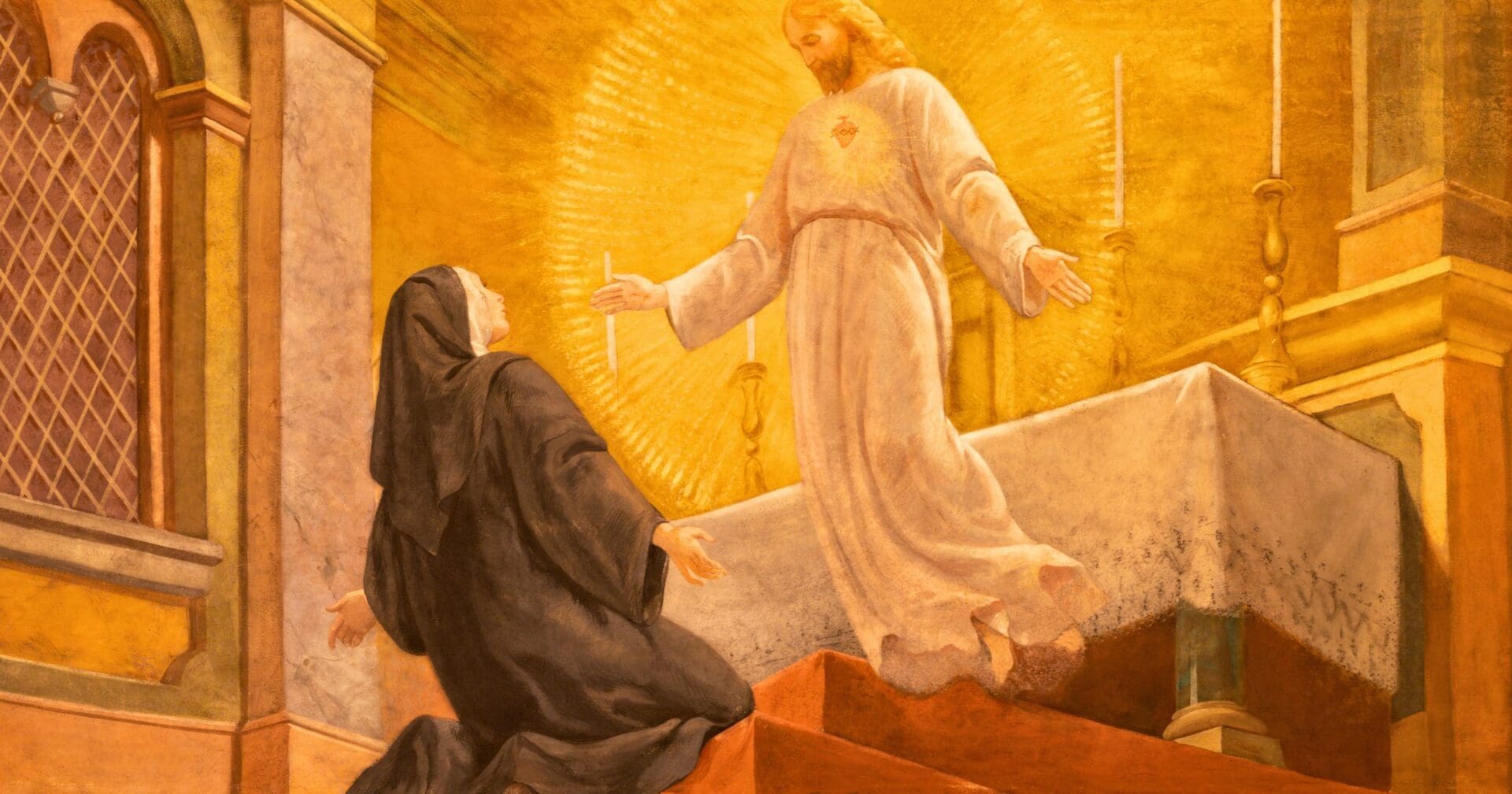
Saint Faustina Kowalska delivered the profound message of God’s mercy to the world through her experiences with the Lord Jesus. She demonstrated the Christian ideal of deep trust in God and boundless mercy towards others.
Born to a devout peasant family in Glogowiec, Poland, on August 25, 1905, Helena Kowalska was the third of ten children. Early in her life, her passion for prayer, hard work, compassion for the needy, and obedience distinguished her. By sixteen, she worked as a housemaid, assisting her family financially.
Although she felt her calling to serve God at seven, her parents discouraged her initial wish to join the convent. It wasn’t until a vision of Christ in 1925 that she joined the Congregation of the Sisters of Our Lady of Mercy, adopting the name Sister Mary Faustina. Over thirteen years, she lived in various religious houses.
Externally, her life seemed routine. Yet, she enjoyed a profound, intimate relationship with God, experiencing exceptional spiritual gifts such as visions, revelations, and mystical experiences. She saw the supernatural world as tangibly as the physical one.
One notable vision on February 22, 1931, was of Jesus as the King of Divine Mercy. He wore a white robe, one hand raised in blessing, and the other at his chest, from which two radiant rays, one red and one pale, emanated. This image became the iconic Divine Mercy representation. Despite initial hesitations from her convent superiors, Father Michael Sopocko, her spiritual director, supported her in spreading this devotion and even financed the creation and distribution of the Divine Mercy image and chaplets.
However, St. Faustina recognized that such divine gifts did not equate to sanctity. She penned in her diary that true sanctity lay in aligning one’s will with God’s, emphasizing a deep, personal connection over mere spiritual gifts.
Her writings, compiled as “Divine Mercy In My Soul”, have been translated worldwide, resonating not just with the faithful but also with theological scholars.
Suffering from tuberculosis and numerous ailments, St. Faustina saw these as sacrifices for humanity’s sins. She passed away in Kraków on October 5, 1938, at only 33, leaving behind a legacy of divine connection and compassion.
Her devotion to the Divine Mercy grew posthumously, culminating in her canonization by Pope John Paul II in 1993. Today, her remains lie at the Sanctuary of the Divine Mercy in Kraków, continuing to inspire devotion and faith in believers worldwide.
Editorial credit: Renata Sedmakova / Shutterstock.com
The post Saint Faustina Kowalska appeared first on uCatholic.
Daily Reading
Thursday of the Second Week in Ordinary Time
Reading 1 Hebrews 7:25—8:6 Jesus is always able to save those who approach God through him, since he lives forever to make intercession for them. It was fitting that we…
Daily Meditation
Finding Solace in Jesus
Click here for daily readings “He had cured many, and, as a result, those who had diseases were pressing upon him to touch him” (Mk 3:10). This scene opens with…




